Is your relationship thriving or are you struggling to maintain emotional intimacy? The key to a strong, lasting relationship is mastering the art of self disclosure in relationships.
Have you ever shared your deepest secrets with someone you deeply care about? Have you dared to bare your soul and be vulnerable before your partner? If you have, congratulations! You know the secret to building a close, intimate relationship.
Sharing our innermost thoughts and feelings with someone we love helps build strong bonds, deeper trust and an intense emotional connection.
Self-disclosure is the secret that unlocks the door to true intimacy and understanding. Today, we are going to explore what is self disclosure in psychology, what are the risks and benefits of self disclosure and how to cultivate openness and vulnerability with your partner.
What is Self Disclosure in Psychology?
At its core, self-disclosure in psychology refers to the act of voluntarily revealing personal information about oneself to another person. It involves sharing your deepest thoughts, emotions, desires, ideas and experiences with someone you trust and care about. These are primarily your personal content that may not be readily apparent to others.
“Self-disclosure happens between people and lies at the heart of almost all relationships. It elicits a dynamic process that shapes and is shaped by relationships,” explain researchers.
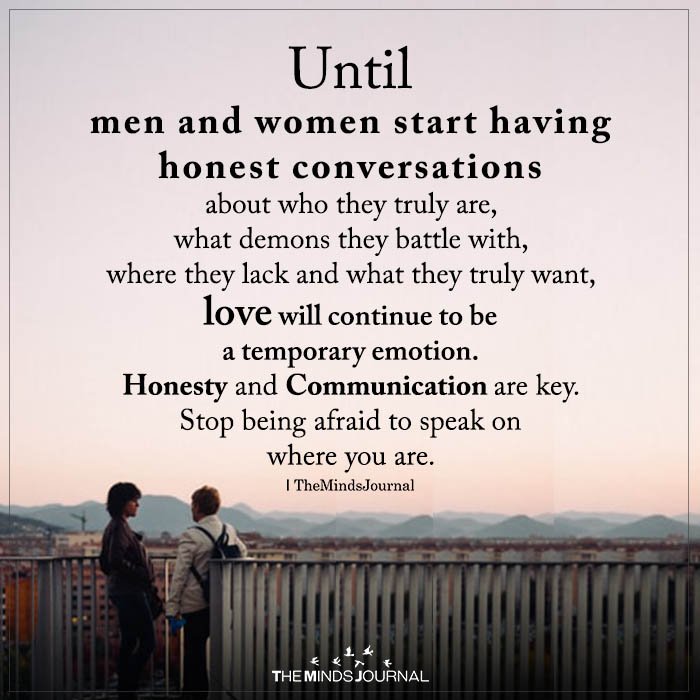
Self disclosure can range from basic, minor details, like your hobbies and interests to more profound revelations, like opening up about past traumas. The depth of self-disclosure varies based on the level of trust and intimacy within a relationship.
Related: 6 Ways To Have Deeper And More Intimate Conversations
Self disclosure in psychology plays a crucial role in building trust, fostering intimacy, and strengthening relationships. However, the level of disclosure varies depending on factors like culture, context, and relationship dynamics.
Effective self disclosure can enhance communication and understanding, while inappropriate or excessive disclosure may lead to discomfort or breaches of privacy.
What Does Self Disclosure in Relationships Look Like?
In case you were wondering, here are some real-life examples of self disclosure in relationships-
1. Sharing Personal Goals and Aspirations
Opening up about your long-term goals, dreams, and aspirations is a form of self-disclosure that allows your partner to understand your desires and motivations better.
Whether it’s a career ambition, a personal passion, or a bucket list item, sharing these aspirations can deepen your connection and create a sense of shared vision for the future.
2. Discussing Family Dynamics
Family plays a significant role in shaping our lives and values. Sharing stories and experiences about your family dynamics, traditions, and upbringing can provide your partner with valuable insights into your background and help them understand you on a deeper level.
It also opens the door for discussions about how family influences your present-day choices and relationships.
3. Exploring Past Mistakes and Lessons Learned
Sharing stories of past mistakes and the lessons learned from them can be a powerful form of self-disclosure. By opening up about your vulnerabilities and the challenges you’ve faced, you demonstrate growth and resilience.
This kind of disclosure allows your partner to see your journey, understand your personal development, and create empathy and understanding between you.
4. Expressing Emotional Triggers
We all have certain triggers that evoke strong emotional responses. Sharing these triggers with your partner can help them understand why certain situations or behaviors affect you deeply.
By disclosing your emotional triggers, you provide your partner with the opportunity to be more sensitive and supportive in those moments, fostering a greater understanding and emotional connection.
5. Revealing Insecurities and Fears
Self-disclosing insecurities and fears can be challenging, as they expose our vulnerabilities. However, sharing these deep-rooted emotions with your partner can lead to greater intimacy and support.
When your partner understands your insecurities and fears, they can offer reassurance, empathy, and help you navigate them together.
Related: 12 Steps To Getting Your Partner To Open Up
6. Discussing Past Relationships
While it’s important to be mindful of boundaries and the timing of such discussions, sharing insights and lessons from past relationships can contribute to a deeper understanding of your emotional history.
It allows your partner to grasp your previous experiences and how they have shaped your expectations and approach to relationships. This can foster empathy, strengthen communication, and promote a more informed and compassionate connection.
Remember, self-disclosure should be a gradual process that aligns with the level of trust and intimacy in your relationship. It’s crucial to gauge your partner’s receptiveness and respect their boundaries as you navigate these conversations together.
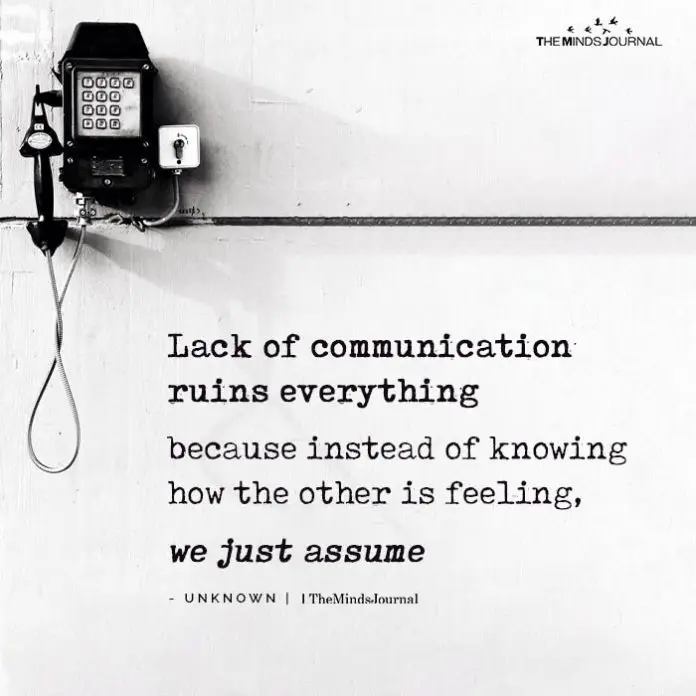
Benefits of Self Disclosure in Relationships: Why You Should Choose To Be Vulnerable
While opening up to another person might feel scary and uncomfortable, it can also help build an authentic relationship. If you are having doubts about self disclosure in relationships, here are some factors you need to consider –
1. Fosters Trust
Trust is the foundation of any healthy relationship. By sharing personal information, you show your partner that you trust them with your vulnerabilities.
This act of trust encourages reciprocity, allowing your partner to feel safe to open up in return. The mutual sharing of intimate details creates a sense of security and strengthens the bond between you.
2. Enhances Emotional Intimacy
Emotional intimacy is the deep connection that arises when two individuals truly understand and empathize with each other’s inner worlds. Self disclosure invites your partner into your emotional landscape, allowing them to explore your fears, hopes, dreams, and insecurities.
This level of vulnerability fosters a profound emotional connection, leading to a more fulfilling and satisfying relationship. This is one of the most prominent benefits of self disclosure.
3. Promotes Communication
Effective communication is the lifeblood of any successful relationship. Self-disclosure provides a platform for open and honest dialogue.
By expressing your thoughts and emotions, you invite your partner to do the same. This exchange of information promotes understanding, empathy, and problem-solving, enabling both of you to navigate challenges more effectively.
4. Encourages Authenticity
In a world often filled with masks and pretenses, self-disclosure allows you to be your authentic self. By sharing your true thoughts and feelings, you create an atmosphere of authenticity within your relationship.
This genuine expression of self encourages your partner to do the same, fostering a space where both of you can be your truest selves without fear of judgment or rejection. This is also one of the crucial benefits of self disclosure in psychology.
Related: Why Good Communication Is Actually Good Emotion Regulation in Disguise
Risks of Self-Disclosure: 6 Things To Be Aware Of
While self disclosure in relationships can be a powerful tool for building trust and connection in relationships, it’s important to be mindful of the potential risks involved. Here are some risks to consider:
1. Fear of Rejection
When you open up and share vulnerable aspects of yourself, there is always the risk that your partner may not respond in the way you hope or expect. They may not be ready to handle the information you disclose, or they may react negatively, which can lead to feelings of rejection or hurt.
It’s essential to be prepared for different reactions and to have open and honest communication about your respective needs and boundaries.
2. Breach of Trust
Self-disclosure requires a certain level of trust between you and your partner. If the information you share is mishandled or betrayed, it can severely damage the trust that you’ve built.
It’s crucial to choose your confidante wisely and ensure that you’re sharing personal information with someone who respects your privacy and can be trusted to handle it with care.
3. Imbalance in Vulnerability
Self-disclosure works best when it’s reciprocal and balanced within the relationship. If one partner consistently shares more than the other, it can create an imbalance and lead to feelings of resentment or emotional disconnection.
It’s important to gauge the level of comfort and willingness to disclose from both sides and to create an environment where both partners feel safe and encouraged to share. This is one of the major risks of self-disclosure.
4. Misinterpretation or Miscommunication
Self-disclosure involves expressing your thoughts, emotions, and experiences, which can sometimes be complex and nuanced. There is always the risk of misinterpretation or miscommunication, where your partner may not fully understand or grasp the intended meaning behind your disclosure.
It’s crucial to practice active listening, clarify any misunderstandings, and encourage open dialogue to ensure that your message is effectively conveyed and understood.
5. Emotional Overload
Intense self-disclosure can bring up strong emotions for both you and your partner. It’s important to be mindful of emotional boundaries and not overwhelm your partner with too much information all at once.
Gradually building trust and allowing space for processing and support can help prevent emotional overload and ensure that both partners feel comfortable and supported throughout the disclosure process.
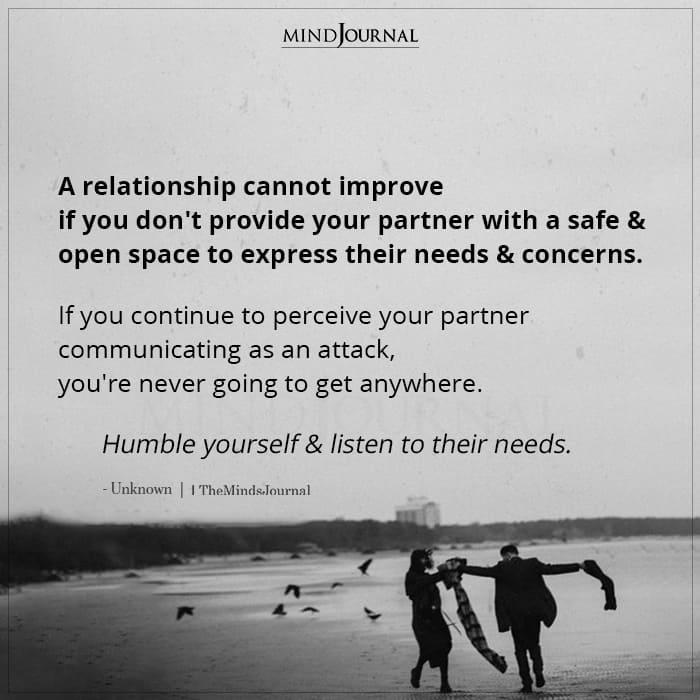
6. Potential for Weaponization
In some cases, personal information shared during self-disclosure can be used against you in moments of conflict or vulnerability. While this is not a common occurrence in healthy relationships, it’s essential to be aware of the possibility and to establish clear boundaries and expectations regarding the use of disclosed information.
Understanding the potential risks of self-disclosure in psychology is crucial for making informed decisions about what, when, and how much to share with your partner. It’s important to assess the level of trust, emotional safety, and mutual understanding within your relationship before delving into deeper and more vulnerable disclosures.
Communication and ongoing dialogue about boundaries and expectations are key to navigating the risks of self-disclosure and ensuring that self-disclosure remains a positive and transformative experience.
Related: Communication In Marriage – 3 Ways To Make Your Wife Feel Secure
5 Tips for Cultivating Self Disclosure in Relationships
If you are unsure about how to open up or be vulnerable with your partner or someone you trust, here are a few practical tips to help you get started –
1. Create a Safe Space
Establish an environment where both you and your partner feel safe and accepted. This involves active listening, non-judgment, and respecting each other’s boundaries.
By creating a safe space, you encourage open and honest communication, making it easier for self-disclosure to occur.
2. Start Small
Begin with sharing less vulnerable aspects of yourself before gradually moving towards deeper disclosures. This gradual progression allows both you and your partner to build trust and comfort over time.
Starting small could involve sharing your hobbies, interests, or favorite childhood memories. As trust deepens, you can gradually move towards more personal topics.
3. Practice Active Listening
When your partner chooses to disclose, practice active listening. Give them your full attention, maintain eye contact, and show empathy. Reflect back what you’ve heard to ensure understanding and validate their feelings.
Active listening creates a safe and supportive space for your partner to continue sharing.
4. Respect Boundaries
It’s important to respect each other’s boundaries when it comes to self-disclosure. Not everyone feels comfortable revealing certain aspects of their life, especially in the early stages of a relationship.
Understand that disclosure is a gradual process, and it’s essential to honor your partner’s pace and comfort level.
5. Be Non-Judgmental
Judgment can be a significant barrier to self-disclosure. Create an atmosphere of acceptance and understanding by withholding judgment. Remember, everyone has their own unique experiences and perspectives.
By embracing this diversity, you create a space where your partner feels safe to share without fear of criticism or rejection.
Related: Relationship Agreement: How It Can Strengthen Your Relationship
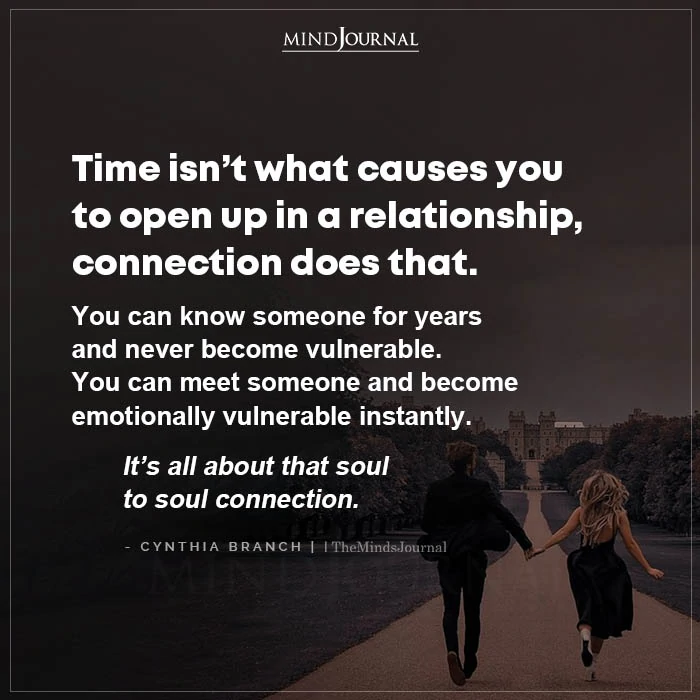
Takeaway
Self disclosure in relationships is a powerful tool that can transform your relationship from surface-level interactions to deep, meaningful connections.
By fostering trust, enhancing emotional intimacy, promoting communication, and encouraging authenticity, self-disclosure allows you and your partner to truly understand and support each other.
Remember, cultivating self-disclosure takes time, patience, and a willingness to be vulnerable. Embrace the journey, and watch your relationship flourish as you share the depths of your being with one another.
Frequently Asked Questions (FAQs):
What are the 4 levels of self-disclosure?
The four levels of self-disclosure encompass superficial sharing, factual information, emotional expression, and deep/personal revelations.
What are 3 rules for using self-disclosure?
When employing self-disclosure, adhere to the principles of reciprocity, ensuring mutual sharing, appropriateness for the context, and gradual progression in disclosure depth.
Does self-disclosure increase intimacy?
Self-disclosure often enhances intimacy by building trust, fostering empathy, and deepening understanding between individuals within a relationship.
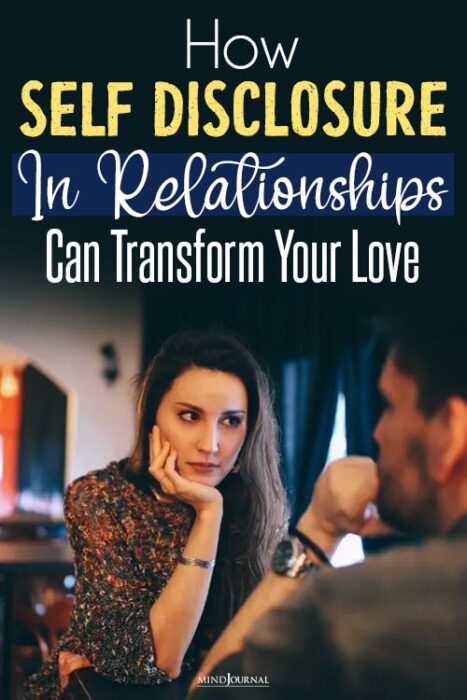
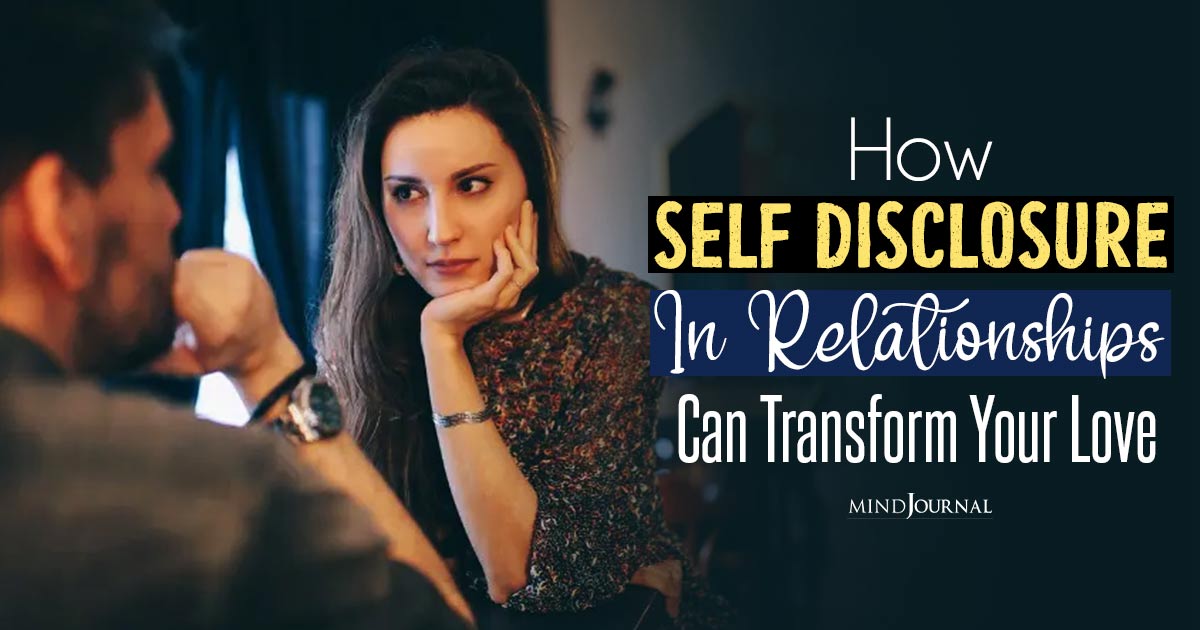







Leave a Reply
You must be logged in to post a comment.